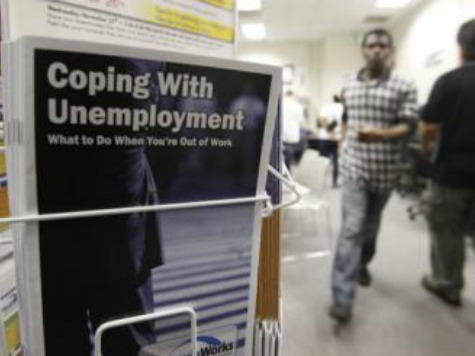
With the United States Congress returning from the Easter break today, there will be plenty of focus in this election year on the continuing challenges of unemployment and its impacts on families. Almost 10% of American families had at least one member of the family unemployed in 2013, according to the U.S. Bureau of Labor Statistics (BLS). Despite improvements in the U.S. economy, widespread effects of unemployment are still leading to declines in individual and family well-being.
It is widely documented that the stress of a job loss can negatively affect parenting practices such as increasing “punitive and arbitrary punishment.” Children and adolescents with an unemployed parent tend to suffer academic problems, substance abuse, high-risk sexual behavior, physical health problems, impaired social relationships, and increased risk of suicide.
The BLS collects data on employment, unemployment, and family relationships as part of the Current Population Survey (CPS), a monthly telephone sampling survey of approximately 60,000 households. Families are classified either as married-couple families or as families maintained by a women or man without spouses present. Families include those without children as well as those with children under age 18.
Of the nation’s 80.4 million families, the number with at least one unemployed member was decreased to 7.7 million in 2013 from 8.4 million in 2012. The proportion of families with an unemployed member decreased from 10.5% 2012 to 9.6% in 2013. Black families had the highest rate of a member unemployed during the year at 16%, followed by Hispanic families at 12.9%, then white families at 8.5%, and Asian families at 7.8%.
About 43% of all American families in 2013 included children, meaning sons, daughters, step-children, or adopted children under age 18. Among the 34.4 million families with children, 88.2% had at least one employed parent in 2013.
Among married-couple families with children, 96.3% had at least one employed parent in 2013. The share of married-couple families with children in which both parents worked was 59.1 percent. The mother was employed in 68.2 percent of families maintained by women with no spouse present in 2013, and the father was employed in 81.2% of families maintained by men with no spouse present.
Mothers with younger children are less likely to be in the labor force than mothers with older children. The participation rate of mothers with infants under a year old was 57.3%, with a child under six years old was 63.9% and with six-to-seventeen-year-olds was 74.7%.
The continued high rate of unemployment has put pressure on Congress in an election year to renew federal Emergency Unemployment Compensation which expired on December 28, 2013. The legislation, titled H.R. 3979, passed the Senate prior to recess. Congressman Dan Kildee (D-MI) introduced H.R. 4415, which is identical to the Senate legislation, and there are also reports of tying the extension to a jobs bill could assure bipartisan support for passage. The proposed agreement would provide for a five-month extension of federal jobless benefits retroactive to December 28th.
The author welcomes feedback and will respond to comments by readers.

COMMENTS
Please let us know if you're having issues with commenting.